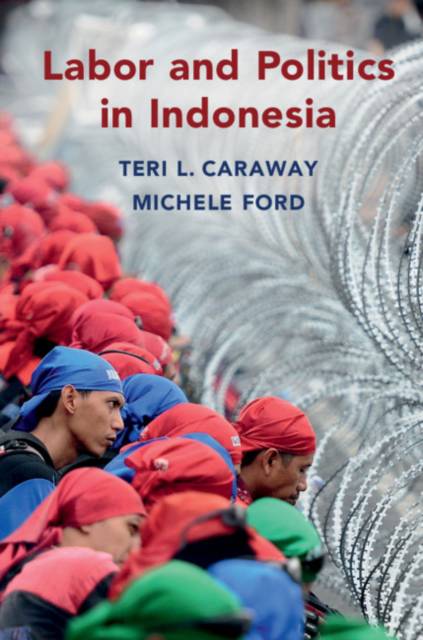
- Afhalen na 1 uur in een winkel met voorraad
- Gratis thuislevering in België vanaf € 30
- Ruim aanbod met 7 miljoen producten
- Afhalen na 1 uur in een winkel met voorraad
- Gratis thuislevering in België vanaf € 30
- Ruim aanbod met 7 miljoen producten
Zoeken
Omschrijving
Two decades after Indonesia's transition to democracy, its labor movement has emerged as a vibrant and influential political actor. Labor and Politics in Indonesia provides the first in-depth analysis of this development, investigating how a structurally weak labor movement carved out a strategic foothold in a country with no recent history of union engagement in politics. Caraway and Ford show how Indonesia's labor movement achieved many of its goals first through the disruptive power of contentious politics and later by combining street and electoral politics. Labor and Politics in Indonesia challenges the dominant theoretical approaches in the study of Indonesian politics, demonstrating how this movement became an active, and surprisingly effective, participant in Indonesia's democracy. Caraway and Ford break new theoretical ground in their analysis of how legacies of authoritarianism, the post-transition political opportunity structure, and the tactical creativity of Indonesia's unions combined to propel Indonesia's labor movement to success.
Specificaties
Betrokkenen
- Auteur(s):
- Uitgeverij:
Inhoud
- Aantal bladzijden:
- 224
- Taal:
- Engels
- Reeks:
Eigenschappen
- Productcode (EAN):
- 9781108478472
- Verschijningsdatum:
- 5/03/2020
- Uitvoering:
- Hardcover
- Formaat:
- Genaaid
- Afmetingen:
- 152 mm x 229 mm
- Gewicht:
- 503 g

Alleen bij Standaard Boekhandel
+ 311 punten op je klantenkaart van Standaard Boekhandel
Beoordelingen
We publiceren alleen reviews die voldoen aan de voorwaarden voor reviews. Bekijk onze voorwaarden voor reviews.











